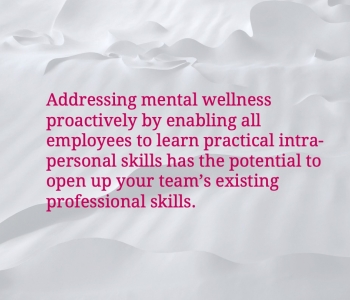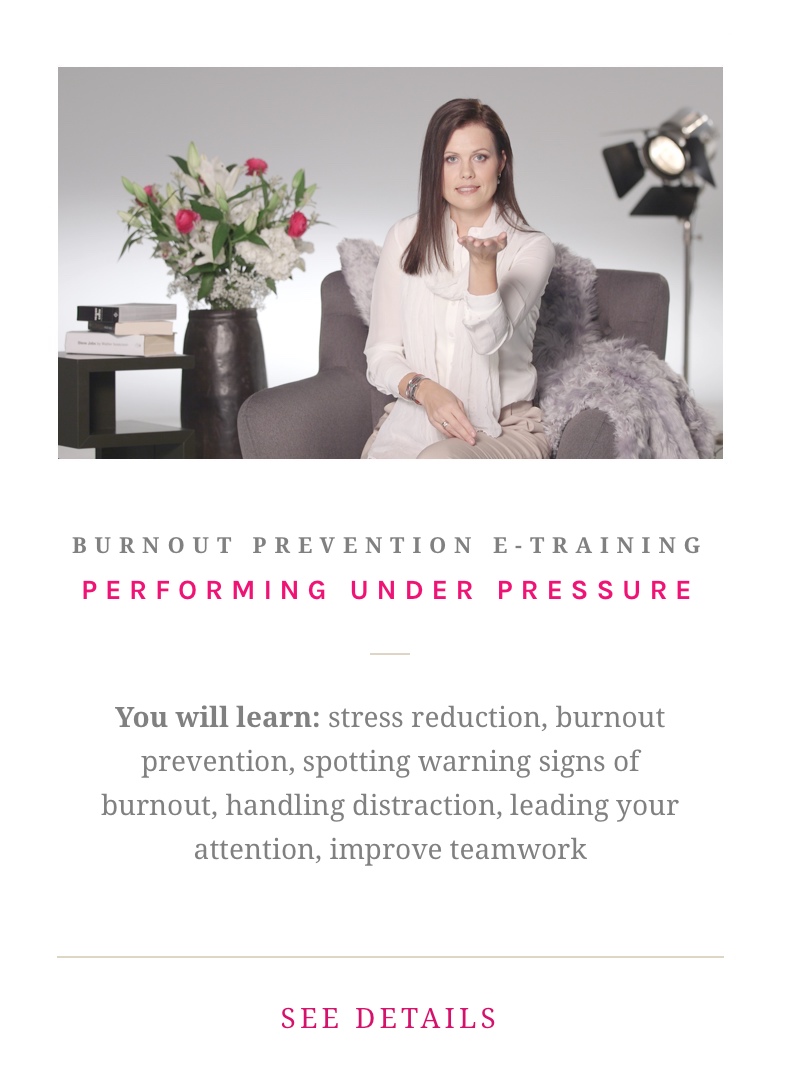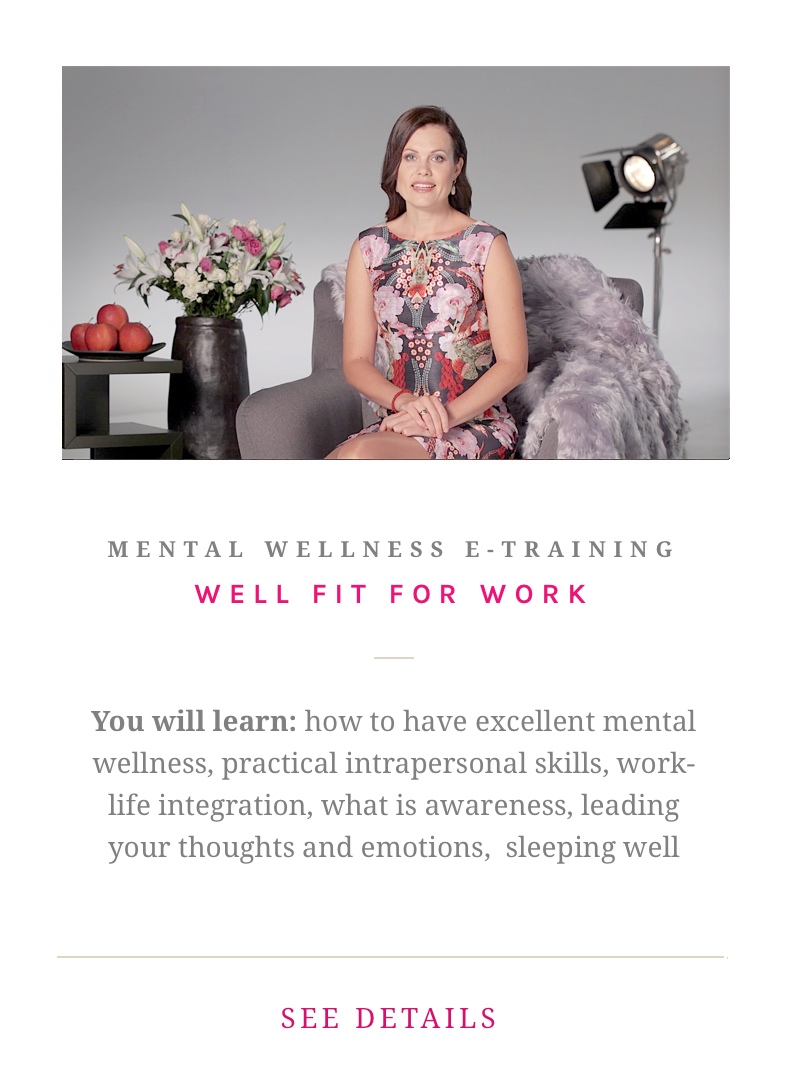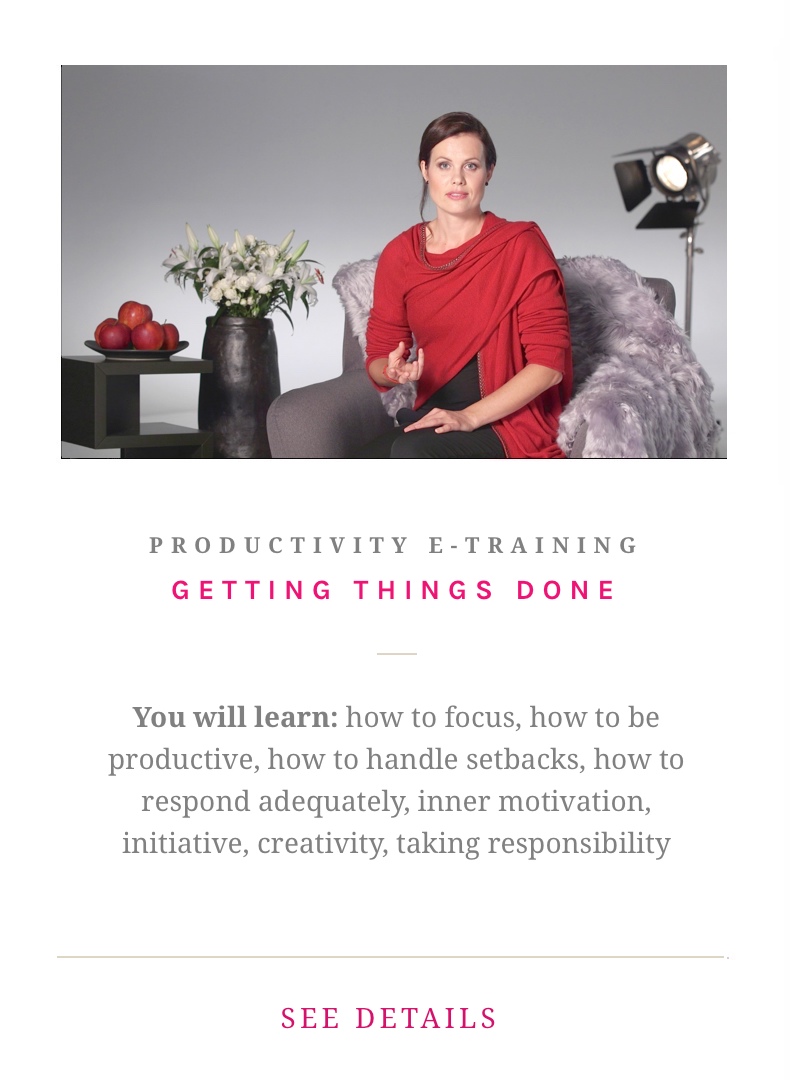Unlock Your Potential: How Intrapersonal Mastery Boosts Soft Skills and Mental Wellness
Every May, Europe focuses on Mental Health Week to champion mental well-being. This year's theme, "Better Together," emphasizes the power of collaboration. Besides social aspects, we need to see how to foster a mentally healthy work environment.
European Mental Health Week is a call to move beyond awareness and into action, dismantling stigma and building a future where mental health thrives.
Traditionally, mental health initiatives have often been designed "for" employees, not "with" them, and have been mostly reactive, not proactive. We hope that this year, the focus shifts.
Co-creation and intrapersonal mastery
Co-creation is the heart of the mental health week. We hope that in your workplace, this allows you to recognize the value of everyone's perspective. Including those who have fit minds as well as those with personal stressful and illness experiences. In the case of mental health issues, it is about support systems and access to mental health professionals.
However, in the case of securing mental wellness, it is on the workplace level about securing an open-minded and caring work culture and including decision-makers on all levels within your organization. However, on the internal level, it is about training your mind by learning intrapersonal skills before you face any problems.
We truly hope this is the beginning of a more systematic, proactive approach to mental wellness at work.
We all have an inner domain, and we need intrapersonal skills to keep our minds fit and well. Training our minds should be a natural part of life. The question here is simple: Are you training your mind?
No one else can do it for you.
|
Benefits of training the mind
Are people in your team training their minds?
Everyone benefits from having better self-leadership skills. The benefits of training the mind go beyond the mental health narrative and support constructive work, employee engagement and productivity.
All soft skills are shaped by your learning and life experiences. Also, your personality and values impact how you use them.
For example, a naturally empathetic person might excel in active listening and seeking mutually beneficial solutions, while someone with strong organizational skills thrives in collaborative settings or solving customer problems.
When you're confident in your ability to deal with your inner problems first and communicate effectively, you can handle any conflict constructively and work collaboratively. Doing this empowers you.
Your intrapersonal mastery always translates into a more positive self-image, a key factor in maintaining excellent mental wellness.
All soft skills are based on intrapersonal mastery
Here are some ideas on how to improve your and your team's soft skills and strengthen your mental well-being at the same time:
- Self-awareness: The foundation of good soft skills is understanding yourself. Here, people need to understand what awareness is and how to lead it at will. Awareness-based intrapersonal skills are the key to understanding your inner domain and how processes within you are related to your actions in work and life situations. The good thing is you can train your intrapersonal skills.
- Active listening: Your focused ability to pay attention to what others are saying, both verbally and nonverbally, matters. Aware listening is one of the most valuable intrapersonal skills.
Everyone can learn it and master asking clarifying questions and avoiding interrupting when things need to be spoken out. In the case of mental health issues, speaking out also eases the burden and allows the speaker to understand things better. Empathy here matters as much as giving later some constructive and supportive feedback.
- Empathy development supports soft skills: Take time to understand the perspectives of others. Notice their emotions and thought patterns and try to see things from their point of view. While automatic negative emotions shouldn't be suppressed and should be released, too few people possess the ability to do this.
Without empathy, people tend to suppress their problems, and as a result, mental health issues from stress to mental health issues escalate. However, all inner reactivity is learned, and unlearning of this becomes possible when you obtain good intrapersonal skills.
- Kind and open communication: Express your needs and opinions clearly and confidently, while respecting the rights of others. No one knows what you think unless you express it. However, conscious speaking is also an intrapersonal skill that everyone can learn.
When your mind is calm, listening and speaking consciously become possible. However, when you are stressed and anxious, it is difficult and energy-consuming for both the speaker and the listener. We aren't born to communicate. We learn how to communicate.
- Embrace and learn from feedback: Seek constructive and kind-hearted, and honest criticism and support from trusted colleagues or mentors. Use it as an opportunity to identify your areas for improvement, both in your work and your inner wellness.
- Value open-mindedness and transparency: Honesty is easy in psychologically safe and open work culture settings.
Open communication, open and kindhearted explanations, and tolerance towards trying and failing earn the trust of employees. Hidden agendas, inner competition, and punishing failures make the work atmosphere toxic and destroy collaboration and innovativeness.
Developing strong intrapersonal skills is, above all, a learning journey. By prioritizing self-awareness, actively practicing intrapersonal skills, and seeking feedback, you'll not only enhance your professional life but also cultivate a more positive and resilient mindset, contributing significantly to your overall mental wellness.
Remember, strong soft skills are always based on good intrapersonal skills. So, learning awareness-based intrapersonal skills is a win-win deal. They empower you in the workplace and contribute to a healthier, happier you, as well as bring good business results.
Only by working together can we ensure mental wellness programs address real needs and prevent the escalation of stress, burnout and mental health issues.
Co-creation fosters a sense of responsibility and earns trust. It is also a sustainable and successful path to taking more personal responsibility, thus leading to more shared accountability and a supportive team mode.
Conclusion
Empowering everyone – from colleagues to leadership – allows you to design a path toward sustained mental well-being.
Imagine a workplace where employees are actively involved in shaping mental wellness initiatives and supporting each other as well as your company vision. What aspects would they prioritize? The possibilities become endless when you and your people work together with good intentions and calm minds.
This European Mental Health Week, as well as U.S. Mental Health Month, is again a call to action. Remember, we are humans and we need social relations. All workplaces win if people are #BetterTogether.
So, it is up to you to engage people actively! Both to work and to train their minds.
|

This Mental Health Week blog contributed by Kaur Lass





